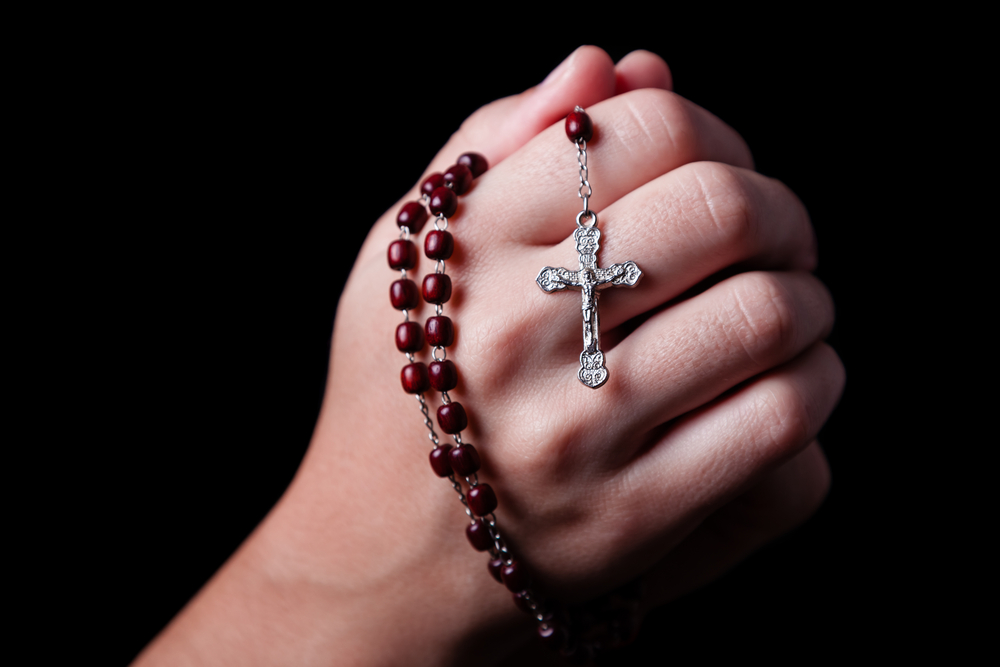Culture and Society: Religion Overview
Religions of the Country
Most Filipinos are Roman Catholic while the remaining belong to other Christian Churches including Evangelical, Iglesia ni Kristo (Church of Christ), Aglipayan (Philippine Independent Church) and others. Muslims, mostly Sunnis, comprise a small percentage of the population as well.
Basic Tenets
Roman Catholicism, through its long line of leaders, starting with St. Peter the Apostle and continuing to the present day Pope Benedict XVI, regards itself as the legitimate inheritor of the ministry of Christ. Like most other Christian faiths, Catholicism is both monotheistic and trinitarian, following one God in three forms, the Father, the Son, and the Holy Spirit. It holds that Jesus Christ, the Son, died and rose from the dead to redeem humanity from its sins. It considers scripture as well as church teachings and sacraments to be legitimate sources of revelation and grace. The sacrament of the Eucharist, or Holy Communion, is usually celebrated at Mass; Catholics go through a period of study before they may receive communion for the first time, as they believe in the real presence of Christ in the bread and wine.
It is not true that Catholics worship saints and statues, but many Catholics have a special affection for certain saints and may use images to focus their minds as they ask a saint to intercede for them in heaven. Human life is sacrosanct in Catholicism, and the Church therefore vehemently opposes activities like cloning, eugenics, euthanasia, and abortion.
Spiritually Devout or Nominal
Religion is valued in Philippine culture. Sixty-eight percent of Filipinos say they go to church at least once a week. People commonly participate in religious rites and festivals and observe religious holidays that may not be on the national calendar.
Religious Conflict
For the most part, religious groups coexist without much trouble, but tension between Muslims and Christians sometimes leads to violence. The Moro Islamic Liberation Front (MILF), an armed Muslim group, continues to fight for more autonomy for the Muslim community. In 2005, the death of a Muslim activist and his family triggered attacks on a military base and developed into fierce fighting that lasted for weeks. More recently, the number of violent clashes has decreased.
Secularism
There is no state religion, and laws stipulate that church and state must be separate. Most people in the Philippines are religious rather than secular, though.
Superstitions
The Philippine Islands are home to a myriad of superstitions of all kinds. These range from belief in "Nuno sa Punso," a sort of elf who lives under anthills or mounds and must not be disturbed, to rural healers who attempt to cure infertility or illness by holding a photograph of the afflicted. There are over 50 images of Jesus and the Virgin Mary in the Philippines that are believed to be miraculous. In 1948, a novice nun was supposed to have been visited by the Virgin Mary 19 times. Some Filipinos also believe that rose petals emblazoned with divine images fell from the sky.
Religious Clerics
Clerics, especially Catholic priests, have a lot of influence in the Philippines. Families are honored to have their sons become priests or their daughters become nuns, and other personal relationships with clerics are also valued. The clergy have a lot of authority in society, and most Filipinos will obey their requests or commands.
Catholic priests are educated in seminaries in the Philippines or abroad.
State Regulations
Clerics are not regulated or paid by the state. The Philippine government does not subsidize any religious institutions, including schools. Religious education classes are sometimes offered in public schools with parents’ permission, but funds for these classes must come from private sources.
Religion and Public Life
Religion has public authority in the Philippines, primarily because clerics are widely respected and generally obeyed. Church groups teach moral education during school hours and can distribute religious literature in schools.
Religion also influences government policies. For example, Filipinos are becoming sexually active at younger ages, but the government is reluctant to provide reproductive health services to the young because of concerns that the Church might perceive such programs as promoting premarital sex.
Religious Holidays and Ceremonies
Maundy Thursday, Good Friday, Easter, All Saints' Day, and Christmas are the publicly recognized religious holidays. Many other regional religious festivals are also publicly celebrated. Recently, it has become an annual practice for the Philippine President to declare the Muslim holiday Eid al-Fitr a nonworking national holiday.
Weddings are important religious rituals, and it’s common to involve family and friends in the ceremony itself. Primary sponsors, usually godparents or close relatives, act as witnesses. Secondary sponsors assist at a specific time in the ritual, for example by draping the veil symbolizing togetherness over the couple, or by lighting candles from which the bride and groom light a symbolic “unity” candle. A Catholic wedding ceremony is legally binding in the Philippines even without a civil ceremony. Marriages in other churches may require a civil ceremony first.
An unusual custom involves inviting passing strangers to participate in a funeral wake. Filipino funeral wakes tend to boisterous and are accompanied by eating, drinking, music, and playing cards, quite unlike the somber funeral ceremonies of other cultures.
Every predominantly Catholic town has its own patron saint, whose feast day is honored each year with a public celebration, processions, and feasting.
Government and Religion
The government is not aligned with any religion or sect in the Philippines. The Constitution specifies that people should have freedom to choose and practice their own religion, and church and state are legally separate.
The government is not anti-religious, and does not exert control over any religious groups. Although church and state are separate, the government has shown caution about actions that might draw the disapprobation of religious groups, especially the Catholic Church.
Islamic Shari'a law is recognized as part of the national civil law that is applied only to Muslims, but it does not apply in criminal law.
Persecution
Outside religions are free to practice and proselytize in the Philippines. Religious services of all kinds are allowed. It is legal to possess and display religious materials.
Religious Tolerance
Muslims in the Philippines have always lived outside mainstream society, and they do experience some discrimination. They live mostly on Mindanao and nearby islands, which are the poorer parts of the Philippines. Filipinos’ preference for dealing with relatives and friends often leaves Muslims with few opportunities.
The government has made efforts to integrate Muslims, with mixed success. The Philippine government was able to collaborate with the Moro National Liberation Front (MNLF) to provide business opportunities and employment for Muslims. Adding former MNLF fighters to the police force and military helped improve relations between Christians and Muslims. There have also been discussions about possible increased recognition of Islamic education and law, among other things
Foreign missionaries are accepted, and proselytizing is not frowned on.
Protocols for Foreigners
Foreigners may enter Catholic churches and attend worship services, but non-Catholics should refrain from taking the communion bread and wine.
Copyright © 1993—2025 World Trade Press. All rights reserved.

 Philippines
Philippines 
